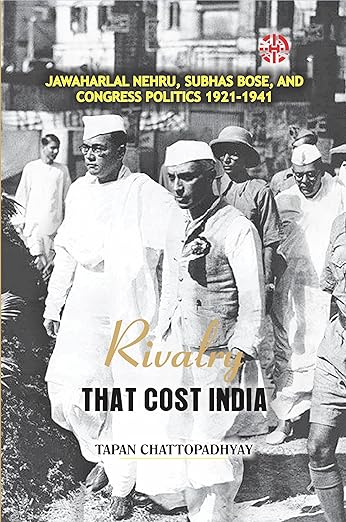
Rivalry That Cost India: Jawaharlal Nehru, Subhas Bose, and Congress Politics 1921-1941
by: Dr. Tapan Chattopadhyayi
-
CATEGORY
History/Politics/Non-Fiction
-
FORMAT
Hardbound
-
IMPRINT
HP Hamilton
-
PRICE
GBP £25.00
INR Rs 595.00
ISBN:9781913936365 | Pages:279 | Edition:2023
ABOUT THE BOOK
Jawaharlal Nehru and Subhas Chandra Bose were India’s two most popular leaders, next only to Mohandas Gandhi. Both of them came from an affluent background, had education in England, possessed an original mind and fought for India’s freedom. They were also much alike in their political ideology and represented the Left in the Congress Party. Bose became a nationalist and believer in a kind of homespun socialism in his student days, but Nehru, a follower of Gandhi, became a socialist at the age of thirty-eight in Berlin under the influence of Virendranath Chattopadhyaya, a secret Soviet agent. To Bose, attainment of freedom was the first and foremost priority, while Nehru thought of India’s independence in the context of international anti-imperialism and anti-imperialist tenets preached by the Comintern.
Both these leaders made their mark during the boycott movement in 1921 and remained politically close till the middle of 1928 and again for a brief period in 1936-1938, before finally parting ways. In the mid-1930s, when Bose was talking about an alternative leadership in the Congress Party, Nehru and the Comintern sought to portray him as a fascist, taking advantage of his long incarceration and exile from India, although Bose considered Nehru as a senior partner in the leadership and sought to win over Gandhi’s support in the party’s power-equation with his help till the very end. Bose was however, no longer relevant to Nehru by this time.
This book tells the story of why and how this historic rivalry could perhaps been one of the primary reasons why India missed an early freedom on better terms.
ABOUT THE AUTHOR
Tapan Chattopadhyay
Dr. Tapan Chattopadhyay, Ph.D. and D.Litt., is the author of The Story of Lalbazar – Its Origin and Growth (Kolkata, 1982), Lepchas and Their Heritage (New Delhi, 1990), The INA’s Secret Service in Southeast Asia – Its Background, Infrastructure, Resources and Activities During World War II (Kolkata, 2011), Kolkata and Its Police – A History of City Police from Charnock’s to Present Day (Kolkata, 2013) and The Horizon of Hope ( San Bernadino, 2017). He has also contributed articles on Indian prehistory and written poems, novels and short stories in Bengali.








